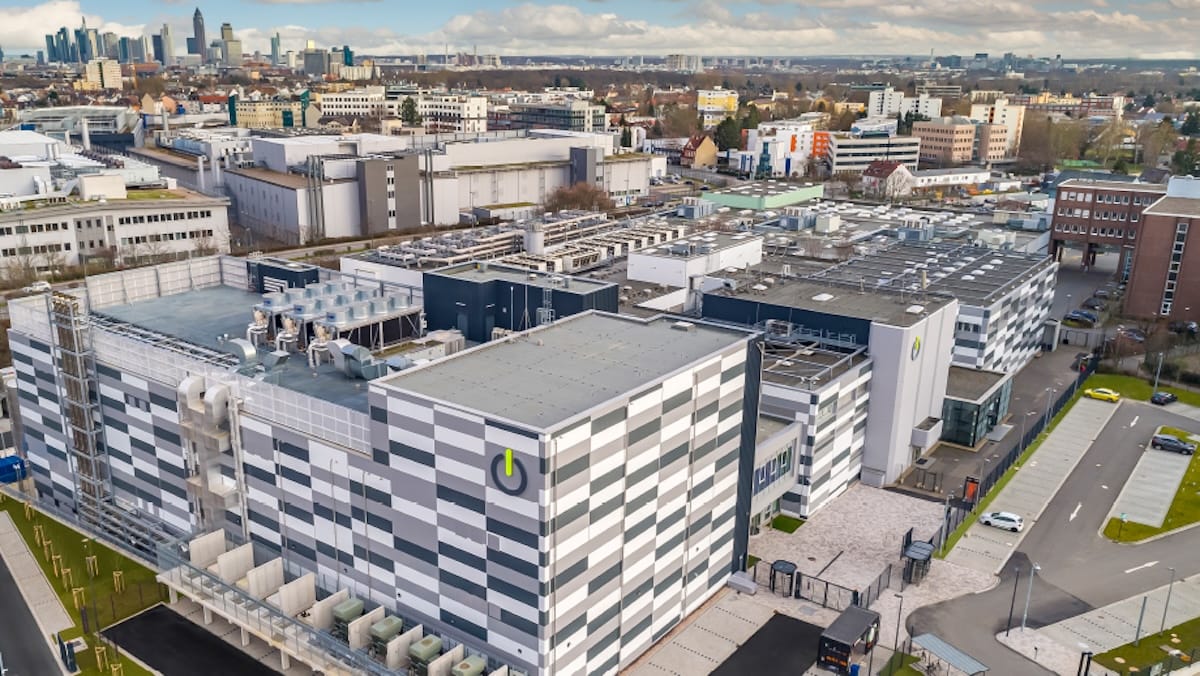The data center operator Global Switch has encountered an obstacle in its expansion plans in Frankfurt, Germany. Although the company owns land adjacent to its current facilities, known as Frankfurt Nord and Frankfurt Süd, the city has determined that this area is not suitable for new data centers according to its recent urban planning policies. This decision has created tensions and could lead to legal actions by the company.
Urban Planning vs. Digital Expansion
The city of Frankfurt seeks to carefully manage the development of its urban infrastructure through the Gewerbeflächenentwicklungsprogramm, a plan to regulate land use and protect other business sectors. This program establishes specific limitations for the construction of new data centers, prioritizing economic diversification in certain areas.
The land in question, owned by Global Switch and located near Eschborner Landstraße, has not been designated as suitable for data centers in the most recent plan approved in December 2024. According to Jens Leuchters, CEO of Global Switch in Frankfurt, this decision significantly limits the company’s rights over its property. Leuchters has requested a reconsideration of the case and has threatened to file a regulatory complaint (Normenkontrollklage).
The Argument from Global Switch
Global Switch emphasizes that expansion is essential to meet the growing demand for digital infrastructure in Frankfurt, one of the most important data hubs in Europe. Currently, its facilities in the city occupy 17,686 square meters and have an efficient capacity, as evidenced by the low PUEThe PUE (Power Usage Effectiveness) index (energy usage efficiency) of 1.1 at the data centerA data center or data processing center (DPC) Frankfurt Nord.
The company argues that preventing the construction of a new center could affect the competitiveness of Frankfurt’s digital sector and result in the loss of key clients. Additionally, Leuchters has cited a resolution from academic institutions and chambers of commerce advocating for a more flexible approach to allow the expansion of data centers in the city.
The Position of the City of Frankfurt
On its part, the city maintains that land use regulation aims to balance the interests of diverse economic sectors and ensure sustainable development. According to Martin Hunscher from the Urban Planning Department, Global Switch still has the opportunity to submit formal objections to the zoning plan during the public consultation period. However, as long as the plan remains unchanged, the land will continue to be excluded from areas approved for new data centers.
This debate not only affects Global Switch but also raises broader questions about how to manage the growth of the data center sector in cities facing space and resource limitations. With over 75 hectares already allocated for such infrastructures in Frankfurt, some officials believe a more restrictive approach is necessary to prevent saturation and diversify the local economy.
Industry Perspectives and Conclusions
Béla Waldhauser, spokesperson for the Allianz zur Stärkung digitaler Infrastrukturen and member of the Pact for Climate-Neutral Data Centers, points out that this case appears to be an isolated incident rather than a widespread trend in Frankfurt’s policy. However, he warns that similar conflicts could arise if regulations become too restrictive, jeopardizing Germany’s position as a leader in digital infrastructure.
Meanwhile, the case of Global Switch in Frankfurt underscores the growing tension between technological development and urban planning in a context where sustainability, the economy, and digitalization compete for the same space.
via: DataCenter Insider

